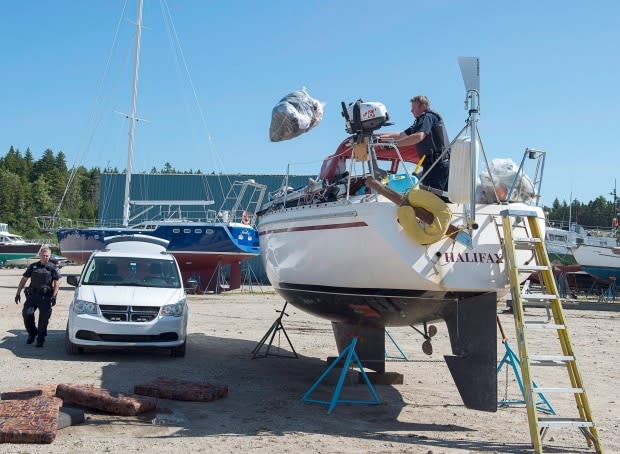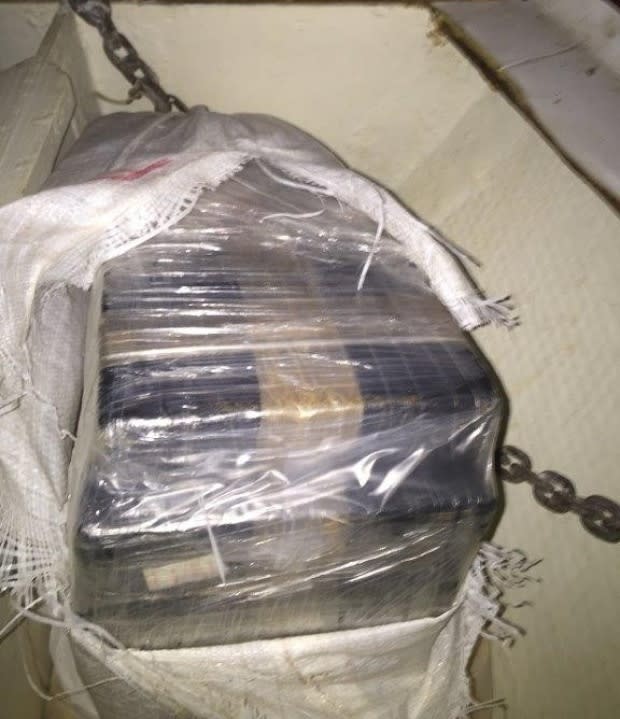The criminal attraction between smugglers, small boats and Nova Scotia's shoreline
The small sailboats and other pleasure craft that dot Nova Scotia's shoreline act as the perfect means to disguise and transport shipments of illegal drugs and other contraband coming into Canada.
Every year, the Canada Border Services Agency finds a dozen or more pleasure craft trying to bring illegal goods into Atlantic Canada. Those boats carry everything from illegal drugs and meat, to illegal immigrants.
In some cases, the Hells Angels and Colombian drug cartels are involved in sending boats full of drugs to Nova Scotia, according to Saint Mary's University criminology professor Stephen Schneider.
"Given the thousands of kilometres of shoreline we have there's the idea that you can serendipitously land along the shoreline without having to go through a heavily fortified border," said Schneider.
An appealing idea for someone trying to sneak illegal goods into the province.

One such sailboat captain tried to do just that in September 2017. When Jacques John Grenier sailed his 9.7-metre boat the Quesera into a small marina in Hubbards, N.S., he had 250 kilograms of cocaine on board.
Officers found bricks of cocaine beneath a bed frame and throughout the boat. Grenier was sentenced to 13 years in prison for drug trafficking.
An expert at his sentencing testified the drugs were probably purchased from a Mexican drug cartel and had an estimated street value of $20 million.
But Schneider said the unguarded coastline is far from the only reason organized crime chooses to move drugs into the province in small boats. Even though much of the world's illegal drugs travel hidden in large shipping containers through major ports, some smugglers want to avoid such locations because they have higher security, he said.
"They feel they have more control over the pleasure craft as opposed to a marine container. They pretty much lose control once they submit the goods and they're packed in the container," Schneider said.
"There's certainly less enforcement of pleasure craft with respect to, say, marine containers, which are heavily targeted by Canada Border Services Agency."

For years, pleasure craft have been used for smuggling. In the early 2000s, some vessels were used by Colombian drug cartels, said Schneider.
In 2002, the RCMP seized 600 kilograms of cocaine on a boat on its way to Cape Breton. Two years later, police intercepted the 14-metre sailboat Friendship, which was carrying 500 kilograms of cocaine.
It's impossible to estimate how much contraband and illegal drugs are coming into Nova Scotia via pleasure craft, but Schneider believes it's only a small amount compared to what's on large cargo ships at the Halifax port.

In the last five years, CBSA has been seeing more drugs coming in over land than on boats in Atlantic Canada.
From April 1, 2018, to March 31, 2019, CBSA made 190 drug seizures, only four of which came from a marine vessel, while 153 seizures were made at land crossings, with the remaining 33 coming from airplanes. The agency did not include the quantity of drugs that were taken during those seizures.
But it's not just drugs that some small craft are carrying, according to Kevin Watson, the chief of marine operations with Canada Border Services Agency. He said the vessels officers search carry a range of illegal items.
"It could be undeclared alcohol, tobacco, it could be undeclared foodstuff coming from international waters," said Watson. "It could be undeclared currency coming into the country, and it could be narcotics and/or illegal immigrants coming in as well."
The CBSA works with the RCMP, the Canadian Coast Guard and other federal departments to try and make sure no illegal goods slip into the country.
The CBSA typically searches more than 150 vessels a year in Atlantic Canada, although not all of them will have contraband on board. Watson said those vessels are selected because they're at a higher risk of carrying something illegal.

Boats travelling to locations with a large illegal drug trade or carrying people with criminal records could attract the CBSA's attention.
Stopping smugglers isn't easy, though. Schneider said they have been known to anchor their boats in international waters, outside Canadian jurisdiction, and do reconnaissance on an area, checking for police and other law enforcement before they come ashore.
"It's pretty difficult to enforce, simply because of the thousands of miles of coastline we have and the lack of police resources we have to guard that coastline," said Schneider.
MORE TOP STORIES

